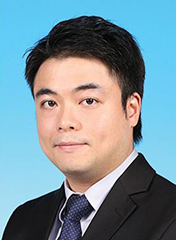


| Date: | 20 Nov 2023 |
| Time: | 12:30 PM – 2:00 PM |
| Venue: |
HKUST Business School Central 1501-02, Hong Kong Club Building, 3A Chater Road Central, Hong Kong |
| Enquires: |
Ms Tracy Au (852) 3469 2471 / daoevents@ust.hk |


By Prof. Terence WONG
Slide-free histological imaging is a cutting-edge imaging technology that revolutionizes the field of histopathology by revealing remaining cancer cells accurately and quickly. This approach involves capturing high-resolution digital images of cancer tissue samples without the need for traditional glass slides. Together with the power of artificial intelligence (AI), it is possible to provide gold-standard equivalent tissue images with automated and precise identification of cellular and tissue structures, aiding in disease diagnosis clinically. By eliminating the need for physical slides and introducing AI-powered analysis, slide-free histological imaging offers advantages such as improved efficiency, scalability, and the potential for enhanced accuracy and speed in pathology workflows, hence, improving patient care.
Trustworthy AI for Healthcare
By Prof. Hao CHEN
AI has revolutionized the healthcare industry by achieving or surpassing human performance in various tasks, thanks to the remarkable advancements in AI techniques and the unprecedented access to medical data. However, despite its impressive capabilities, AI still faces challenges in its trustworthiness, such as a lack of generalization and explainability, which hinder its widespread application in real-world scenarios. Therefore, it is crucial to enhance the credibility of AI to increase the trust and confidence of medical professionals and patients in adopting these techniques. In my talk, I will discuss the latest progress in developing trustworthy AI methods for disease diagnosis and prognosis.
Evolving Synthetic Viruses: Sparking the Gene Therapy Revolution with AI
By Prof. Bonnie ZHU
Over the past decade, gene therapy has become increasingly successful in clinics as a means of delivering genetic material (i.e., DNA) to the cells of a patient for therapeutic benefit. Prof. Zhu and her group aims to engineer novel ‘carriers’ for gene delivery using a combination of protein engineering approaches and machine learning. These ‘carriers’ will be designed to target specific cell types and perform desirable functions, offering a next-generation delivery system for therapeutic applications in many diseases. The extension of these new technologies will have broad utility and potential for developing future treatments.




